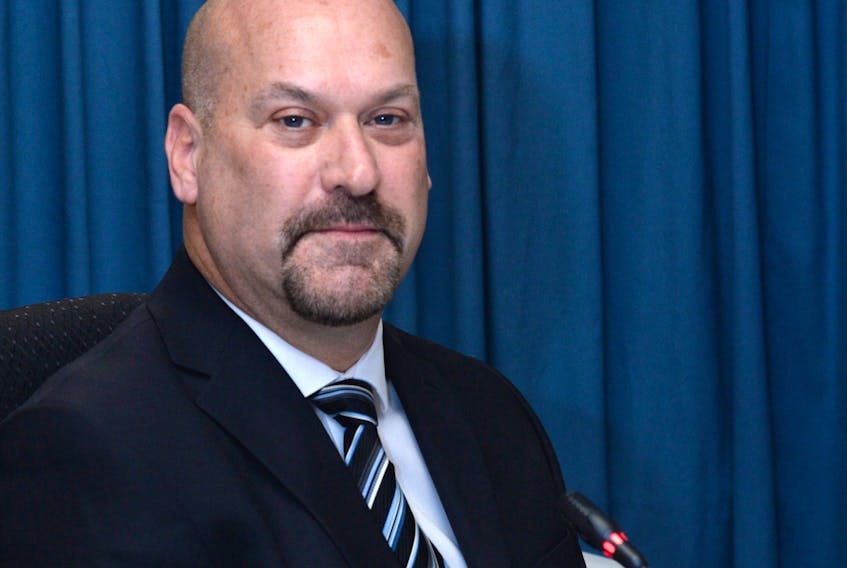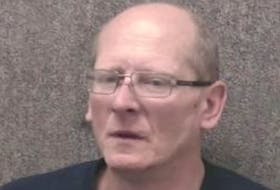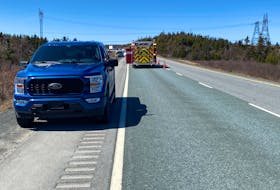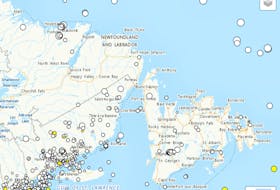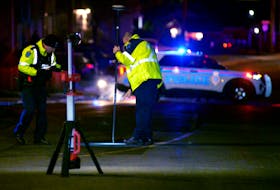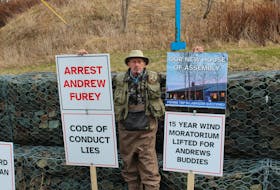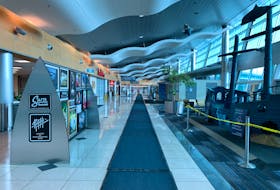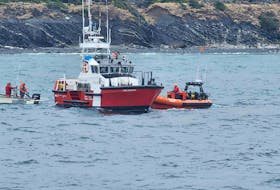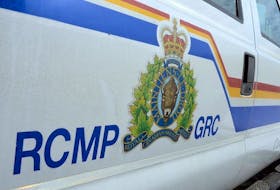More questions are being posed at the Muskrat Falls Inquiry about information from consultants, seen by the province and Nalcor, but not released to the public. That’s despite the information being relevant to the debate raging in 2012 over the province’s energy options.
Nalcor Oil and Gas lead Jim Keating was asked on Nov. 22 about a report from PIRA Energy Group in September 2012 on natural gas. It was never released publicly, but is now in evidence.
Keating was also asked that day about a separate piece of work by Wood Mackenzie for the provincial Department of Natural Resources. Wood Mackenzie looked at the report by Ziff Energy on the province’s natural gas options, as a proposed alternative to hydroelectric power from Muskrat Falls.
There were comments from Wood Mackenzie on the idea of using imports of liquefied natural gas (LNG) as an infeed for a power plant at Holyrood. But when Wood Mackenzie’s comments were released to the public, the section on LNG imports was not there.
Former natural resources minister Jerome Kennedy says he doesn’t know why the Wood Mackenzie commentary was not released to the public in full.
“I thought it was, to be quite honest,” he told inquiry co-counsel Barry Learmonth, while on the stand earlier this week. He added he was well aware of commentary produced on natural gas in Newfoundland and Labrador and met with Ziff Energy, PIRA and Wood Mackenzie.
Over the past two days, Charles Bown — an associate deputy minister in the Department of Natural Resources in 2012 — was asked about the Wood Mackenzie submission to the government while on the stand Wednesday and Thursday. At first he couldn’t say who ordered the changes. After some hesitation, Bown testified he oversaw the removal of the LNG section of the document at the order of then-minister Kennedy.
Bown suggested there was a desire by the provincial government and Nalcor Energy to address the ongoing public debate on the idea of a pipeline for natural gas, using gas from the province’s offshore. That’s a different set of numbers than LNG imports.
Learmonth suggested the full Wood Mackenzie report was “suppressed,” because it was something other than Muskrat Falls to explore and the government was determined at that point to eliminate alternatives.
Cheaper option?
None of the consultant reports state definitively natural gas imports would have won out over Muskrat Falls as the “least-cost option.”
The Ziff Energy report on natural gas was dated Oct. 30, 2012. It was released to the public on Nov. 1, 2012. It’s the document commented on by both PIRA and Wood Mackenzie, and said natural gas was not a cheaper option.
A broader “cumulative present worth” (CPW) comparison of alternatives was produced before Nalcor Energy and the province narrowed the options to two: the “isolated island” and “interconnected” (a.k.a. Muskrat Falls) option for power. The broader comparison of options showed liquified natural gas imports at “80 per cent to 90 per cent of Brent” price would lead to a CPW value of between $10.7 billion and $11.1 billion. That’s compared to $10.8 billion for the isolated island and $8.4 billion for Muskrat Falls. The CPW values for natural gas pipeline options were higher.
The LNG option, however, was much closer to the “isolated island.” And with suggestions on pricing from Wood Mackenzie and PIRA, it could have come in lower than that alternative.
If natural gas was one of the options put forward to the Public Utilities Board (PUB) as part of its review in 2011-12, the regulator and interveners could have sought additional information. They theoretically could have offered additional views on gas options.
And if the references to LNG were left in the Wood Mackenzie commentary, or if the report from PIRA was released, there could have been additional commentary and debate on LNG imports.
Pipeline focus
As the Ziff Energy report was released, the public debate in Newfoundland and Labrador was focused on an offshore pipeline.
On Nov. 23, 2012, Cabot Martin, president of Deer Lake Oil and Gas and a member of the 2041 Inc., a group of individuals who were objecting to the Muskrat Falls project’s approval, called a news conference to challenge the Ziff report.
“The Ziff report is, in short, far too restricted and too inaccurate to constitute a valuable addition to our Muskrat information here,” Martin said at the time. “It does not, in any way, close the natural gas information gap that government has created. We are still without a single comprehensive study of all our natural gas options without which Muskrat Falls should not be sanctioned by government.”
Martin went on to firmly promote a pipeline project using White Rose gas both domestically and for gas exports. He said negotiations with Husky Energy could make it possible and it could be funded by the private sector.
“The only public financing required would be $720 million for a new clean burning, gas fired combined cycle thermal plant at Holyrood,” he said, offering up his 13-page commentary.
He suggested Ziff Energy was unqualified to write a report on natural gas in Newfoundland and Labrador because it did not have experience in the province’s oil and gas sector.
The Wood Mackenzie follow-up report was released on Nov. 26, 2012. A news release at that time specifically referenced Martin’s commentary, and more than once.
“Mr. Martin’s analysis is inaccurate,” Kennedy is quoted as saying. “For critics to outright disregard the work of an internationally recognized energy group, and attack not the facts contained in their review on natural gas, but rather their credibility and ability to conduct an independent analysis is irresponsible.”
Commissioner Richard LeBlanc will have the ability to address whether or not natural gas was a fully explored option for meeting Newfoundland and Labrador’s energy needs.
Related stories:
Natural gas report withheld by Nalcor, Muskrat Falls Inquiry hears

